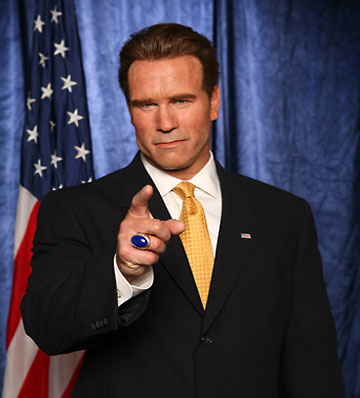Is it possible to cheat and still succeed?
All around us we see people who have cheated and are still successful. Recent scandals from Anthony Weiner to Arnold Schwarzenegger  provide successful public figures who’ve cheated on one level yet had reached a moderate to high level of success. Some would say this is evidence that the answer is yes. The question becomes is success just accomplishment and achievement, or does it also include fulfillment. If you define success as being fulfilled then you’d have to question why anyone who feels fulfilled would find it necessary to cheat.
provide successful public figures who’ve cheated on one level yet had reached a moderate to high level of success. Some would say this is evidence that the answer is yes. The question becomes is success just accomplishment and achievement, or does it also include fulfillment. If you define success as being fulfilled then you’d have to question why anyone who feels fulfilled would find it necessary to cheat.
Success in business means hitting your targets. Setting priorities and goals and then reaching them. Darren Hardy in the Compound Effect notes that successful people aren’t necessarily more intelligent or more talented than anyone else. But their habits take them in the direction of becoming more informed, more knowledgeable, more competent, better skilled, and better prepared.
At Positioning Systems the Strategic Disciplines we focus on coaching are clients on are meetings, metrics and priorities. These provide a disciplined behavior pattern for a business to achieve success. Aristotle wrote, “We are what we repeatedly do.”
Can you win a championship, lose weight, quit smoking, be successful in business if you cheat a little along the way? Can you lose 20 pounds and still have an ice cream cone or chocolate malt occasionally?
The difference between becoming fabulously rich, happy, and healthy, or broke, depressed, and unhealthy, is the choices you make throughout life.
It’s the little things that inevitably and predictably derail your success.
Can you cheat on your priorities, meetings and metrics? Of course you can. You can cheat and be successful. The question is: how successful do you want to be? How much of your potential do you wish to reach? Let’s also understand that there’s a difference between rewarding, celebrating, rest and recovery and what you call cheating.
A small diversion, a missed meeting may not ultimately derail your success. Yet each dodge or attempt to deceive yourself on the path to your objectives impacts the compounding effect of your efforts.
Great achievers, CEOs, and “superstars,” all share one common trait—they all have good habits.
The difference between becoming fabulously rich, happy, and healthy, or broke, depressed, and unhealthy, is the choices you make throughout life. Everything in your life exists because you first made a choice about something. Every choice has an impact on the Compound Effect of your life.
Cheating impacts the compounding effect of your efforts. Have you been guilty of setting priorities that don’t require your best effort? Have you opted out of a meeting because you’re lazy or just not up for it today? Have you failed to make yourself or one of your people accountable for missing a metric?
Ask yourself how that affected your company’s performance? The greatest challenge with cheating even a little bit isn’t what happens when you do it once, it’s the belief you can get away with it repeatedly. Awareness of the Compound Effect and its impact on your results should make you recognize how critical it is to stay on track.
What are your thoughts on cheating, giving less than your best? Have you proof that you can give less than your best, or fail to be disciplined and still be successful?






.jpeg?width=150&height=135&name=Hand%20with%20marker%20writing%20the%20question%20Whats%20Next_%20(1).jpeg)

